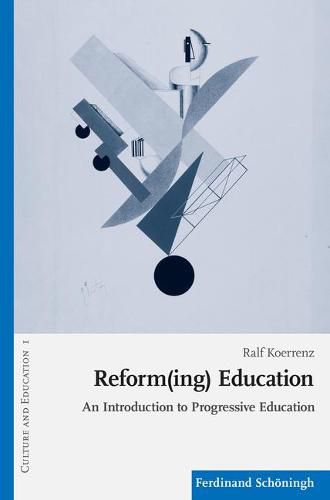Readings Newsletter
Become a Readings Member to make your shopping experience even easier.
Sign in or sign up for free!
You’re not far away from qualifying for FREE standard shipping within Australia
You’ve qualified for FREE standard shipping within Australia
The cart is loading…






Generally, concepts of progressive education emphasize the connection between reform and education to describe their own tradition as well as current educational challenges the academic community and the public are facing today. This volume introduces five clearly distinguishable approaches through which the theoretical and practical potential of combining reform and education can be grasped. First, one can ask how education is inherently structured, drawing on the distinction between reform and non-reform . Second, one can ask how the reform motif has been used to link education to cultural change throughout time. Third, reform(ing) education can be understood as the answer to modernization processes in the wake of the Enlightenment and its manifold manifestations and debates. Fourth, reform(ing) education proves to be a classical response to industrialized modernity in the first third of the twentieth century - and even beyond. Fifth, this introductory text leads to reflections on reform(ing) education as a challenge for today’s educational thought.
$9.00 standard shipping within Australia
FREE standard shipping within Australia for orders over $100.00
Express & International shipping calculated at checkout
Generally, concepts of progressive education emphasize the connection between reform and education to describe their own tradition as well as current educational challenges the academic community and the public are facing today. This volume introduces five clearly distinguishable approaches through which the theoretical and practical potential of combining reform and education can be grasped. First, one can ask how education is inherently structured, drawing on the distinction between reform and non-reform . Second, one can ask how the reform motif has been used to link education to cultural change throughout time. Third, reform(ing) education can be understood as the answer to modernization processes in the wake of the Enlightenment and its manifold manifestations and debates. Fourth, reform(ing) education proves to be a classical response to industrialized modernity in the first third of the twentieth century - and even beyond. Fifth, this introductory text leads to reflections on reform(ing) education as a challenge for today’s educational thought.